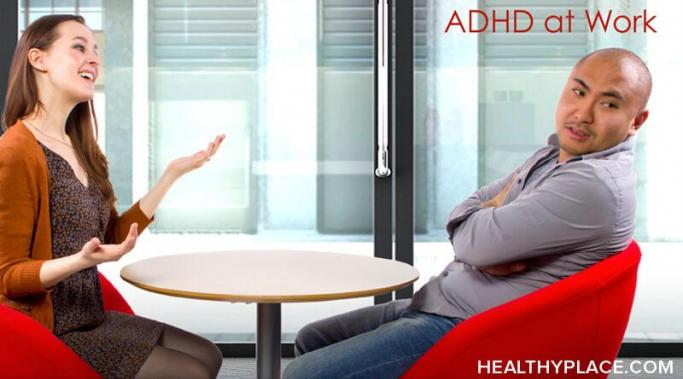Most people fall victim to the time-related “planning fallacy,” but those with attention-deficit/hyperactivity disorder (ADHD) are especially susceptible. The planning fallacy is the assumption that a task will run smoothly and quickly, in spite of the average length of time and number of obstacles that particular task usually involves. People with ADHD struggle with time-blindness and organization, so this fallacy is a particularly challenging one.
Living with Adult ADHD
About half of those with attention-deficit/hyperactivity disorder (ADHD) struggle with auditory processing disorder (APD). Their sense of hearing may be fine, but they can have a hard time making out what someone is saying. I have always struggled to follow conversations in noisy areas and was interested in learning more about how this phenomenon relates to ADHD.
A number of children diagnosed with attention-deficit/hyperactivity disorder (ADHD) supposedly outgrow ADHD, but quite a few do not. It used to be thought that most children lose the diagnosis as they age, but theories increasingly suggest that most people still have ADHD throughout adolescence and possibly adulthood. Certain experts even theorize that ADHD never disappears; its symptoms simply morph and become more subtle. This made me wonder why some supposedly grow out of ADHD and what it means to know that ADHD might never go away.
Many people with attention-deficit/hyperactivity disorder (ADHD) have experienced a mental breakdown. I often use the phrase to describe how I feel when I lose control of my emotions and ability to think clearly. This can be triggered by seemingly small events, but usually it is the straw that breaks the camel’s back, one more problem added to a pile of challenges. I would like to discuss what mental breakdowns actually are, why people with ADHD might be particularly susceptible to them, and how we can deal with them.
I've found my new attention-deficit/hyperactivity disorder (ADHD) morning routine beneficial to me. Morning routines can be helpful for both children and adults with ADHD. Falling asleep and waking up again is notoriously difficult for many ADHDers. I have been experimenting with morning routines, and I have actually come to enjoy them.
Starting a new job with attention-deficit/hyperactivity disorder (ADHD) can be particularly difficult. If you have ADHD, remind yourself that this is a big change, which is both exciting and challenging for someone with ADHD. Below is a video with a few questions you might want to ask your employer before you get started at your new job with ADHD.
Is it difficult for people with attention-deficit/hyperactivity disorder (ADHD) to show vulnerability? Do we consciously try to avoid being vulnerable, or is it simply hard for us to be in touch with it? Perhaps others with ADHD have different experiences, but I find it very challenging to reveal any vulnerabilities. A number of factors might contribute to this phenomenon, including the strong emotions and sensitivity that often accompany ADHD.
People with attention-deficit/hyperactivity disorder (ADHD) often struggle with insecurities. Much has been written about ADHD and self-esteem, and, to me, low self-esteem and insecurity go hand-in-hand. An interesting article on FastBraiin describes a number of conditions associated with ADHD, including low self-esteem, insecurity, and anxiety. All three result from confusion about one's role, identity, or expected behavior. It makes sense that people with ADHD, whose thoughts can go all over the place, would experience this sense of confusion.
I want to talk about suicide and attention-deficit/hyperactivity disorder (ADHD) because September is Suicide Prevention Month. Though ADHD has a reputation in our society for being either a punchline or an excuse, it is important to note that people with the condition have a 30% higher risk for attempting suicide or dying by suicide.1 There are a number of reasons for this, including high comorbidity (when multiple conditions exist in the same person) with other disorders, such as depression or anxiety. Read more to find out what contributes to this high suicide rate in people with ADHD and what we can do to help prevent it.
People with attention-deficit/hyperactivity disorder (ADHD) face many challenges at work, but there are ways to help them excel.* A nine-to-five office job is difficult for many people, especially those with ADHD. I personally like the structure and stability of that kind of position, but the idea of doing something in the same place for eight hours, often under someone else's supervision, is daunting. That said, the following advice applies to a variety of jobs, traditional or not.









